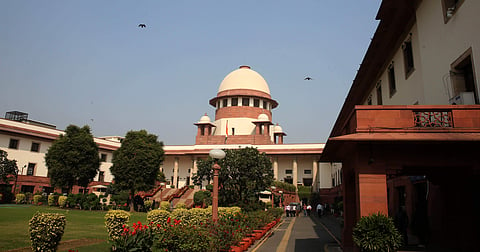

NEW DELHI: The Supreme Court Thursday refused to hear a plea of Chinese social media app TikTok for the transfer of cases relating to ban on it from the Madras High Court to the apex court.
A bench headed by Chief Justice Ranjan Gogoi did not agree with the contention of senior advocate A M Singhvi, appearing for the Chinese firm, that all the matters pending in the Madurai bench of the Madras High Court be transferred here for final and expeditious disposal.
"We are not inclined to entertain this transfer petition," the bench, which also had Justice Deepak Gupta, said prompting the firm to withdraw its transfer plea.
Earlier, the apex court had directed the Madras High Court to decide on April 24 the plea of TikTok seeking interim relief of lifting the ban imposed by it.
The Madras High Court had on April 24 lifted its ban on the social media app with the condition that the platform should not be used to host obscene videos.
The high court had on April 3 directed the Centre to ban mobile application TikTok as it had voiced concern over "pornographic and inappropriate content" being made available through such apps.
It had passed an interim order on a public interest litigation which sought a ban on the app on the ground that it allegedly carried contents that "degraded culture and encouraged pornography".
Hearing a plea by Chinese company ByteDance, which owns TikTok, challenging the ban, the Supreme Court had refused to stay the high court order but asked it to raise its grievances before the high court.
The company had earlier told the top court that there were over billion downloads of the mobile app and ex-parte orders were passed by the high court.
The high court had on April 3 directed the media not to telecast video clips made with TikTok.
The app allows users to create short videos and then share them.
It had asked the government if it would enact a statute on the line of the Children's Online Privacy Protection Act in the US.
Even after the havoc caused by Blue whale online game, which reportedly led to suicides by several people, officials have not learnt that they should be alert to these types of problems, the high court had said.
Only when officials and policymakers were able to act on problems of society, a decision could be taken to prevent these kind of apps, it had said.
The court had said it was evident from media reports that pornography and inappropriate content were made available through such mobile applications.